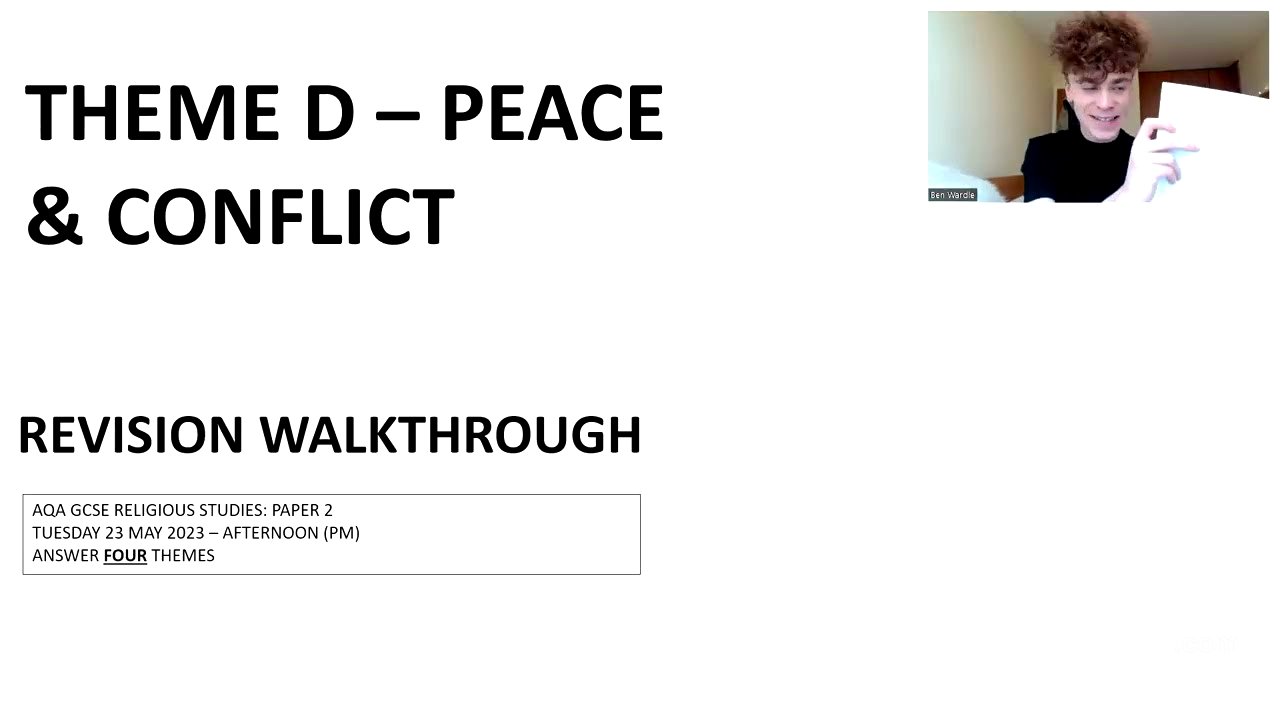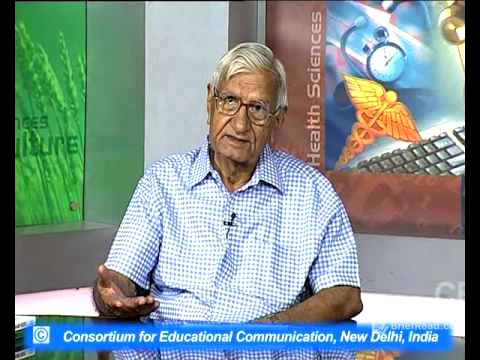TLDR;
This video provides a comprehensive revision walkthrough for the AQA Religious Studies Paper 2, focusing on Theme D: Peace and Conflict. It covers key terms, Christian and Islamic beliefs on violence, terrorism, war, pacifism, weapons of mass destruction, and peacemaking. The video also offers guidance on how to apply this knowledge in the exam to achieve a high grade.
- Key terms and their significance in the context of peace and conflict.
- Contrasting Christian and Islamic perspectives on violence, war, and pacifism.
- The importance of peacemaking and the roles of religious figures and organisations in promoting peace.
Introduction to Theme D: Peace and Conflict [0:00]
The video introduces Theme D: Peace and Conflict, for the AQA Religious Studies Paper 2 exam. It emphasises the importance of focusing on the four themes studied in RE lessons and provides an overview of the topics covered, including peace, justice, forgiveness, reconciliation, violence, terrorism, war, pacifism, weapons of mass destruction, and peacemaking. The presenter encourages viewers to download the revision booklet and PowerPoint to follow along, and highlights the structure of the exam questions and how to approach them for maximum marks.
Exam Question Types and Key Terms [2:47]
This section details the five types of questions asked on Theme D, ranging from a one-mark multiple-choice question to a 12-mark evaluation question. It stresses the importance of understanding key terms for all question types. Key terms discussed include conflict, forgiveness, holy war, justice, just war, nuclear deterrence, nuclear weapons, pacifism, peace, peacemaking, protest, reconciliation, retribution, terrorism, victims of war, violence, war, and weapons of mass destruction, with definitions provided for each.
Peace, Justice, Forgiveness and Reconciliation [7:03]
The video explores the importance of peace, justice, forgiveness, and reconciliation in Christianity and Islam. In Christianity, peace is linked to Jesus's teachings on peacemaking, justice to the book of Isaiah, forgiveness to Jesus's teaching to forgive endlessly, and reconciliation to God's reconciliation with humanity through Christ. In Islam, peace is encouraged through saying words of peace, justice through standing up for it, forgiveness through the Hadith, and reconciliation as a reward from God.
Christian and Islamic Beliefs on Violence [9:55]
This section examines Christian and Islamic attitudes towards violence, including violent protests. Negative attitudes in Christianity include Jesus's teachings against violence and the commandment "do not kill". Positive attitudes include the Old Testament's "eye for an eye" and Thomas Aquinas's doctrine of double effect for self-defence. In Islam, negative attitudes include the emphasis on peace and the sanctity of life, while positive attitudes include fighting in the way of God (Lesser Jihad) under strict conditions.
Terrorism: Religious Perspectives [14:31]
The video discusses the universal condemnation of terrorism by both Christians and Muslims. Christian reasons for condemning terrorism include the commandment "do not kill", the Imago Dei doctrine, and the sanctity of life. Islamic reasons include the Quran's teachings against killing oneself or others, the sanctity of life, and the importance of peace. Both religions view terrorism as gravely against justice and a distortion of religious values.
War and Just War Theory [18:54]
This section focuses on Christian and Islamic beliefs about war, particularly Just War Theory. It details Saint Thomas Aquinas's Just War criteria, including "jus ad bellum" (criteria before war) and "jus in bello" (criteria during war). Islamic perspectives include the concept of Lesser Jihad, which allows for war in self-defence or defence of religion under strict conditions. The section also touches on historical examples of holy wars and their implications.
Pacifism: Contrasting Beliefs [28:06]
The video explores pacifism, the belief that all violence is wrong, from Christian and Islamic perspectives. Christian pacifists, such as the Quakers and Martin Luther King Jr., advocate for peaceful means to achieve peace. However, the Catholic Church believes in strict conditions for justifiable war. Islamic views are divided, with some emphasising peace and non-violence, while others justify war for self-defence or defence of religion, as reflected in the concept of Lesser Jihad.
Weapons of Mass Destruction: Ethical Considerations [32:31]
This section examines contrasting beliefs about weapons of mass destruction. Some argue for nuclear deterrence, citing the need to submit to governing authorities. Others oppose such weapons due to their disproportionate impact on innocent civilians and the risk of mutually assured destruction. Christian opposition is rooted in stewardship and the commandment "do not kill," while Islamic opposition cites the Quran's prohibition against overstepping limits and the duty to be a good steward.
Religion and Peacemaking: Case Studies [38:10]
The video concludes by exploring the role of religion in peacemaking. Christian motivations include Jesus's teachings on peacemaking and the example of Martin Luther King Jr. Islamic motivations include the Quran's emphasis on peace and the concept of stewardship. The section highlights Christian and Islamic peacemakers and organisations, such as PAX Christi, Christian Aid, Muhammad Ali, and Islamic Relief, and their efforts to promote peace and help victims of war.









